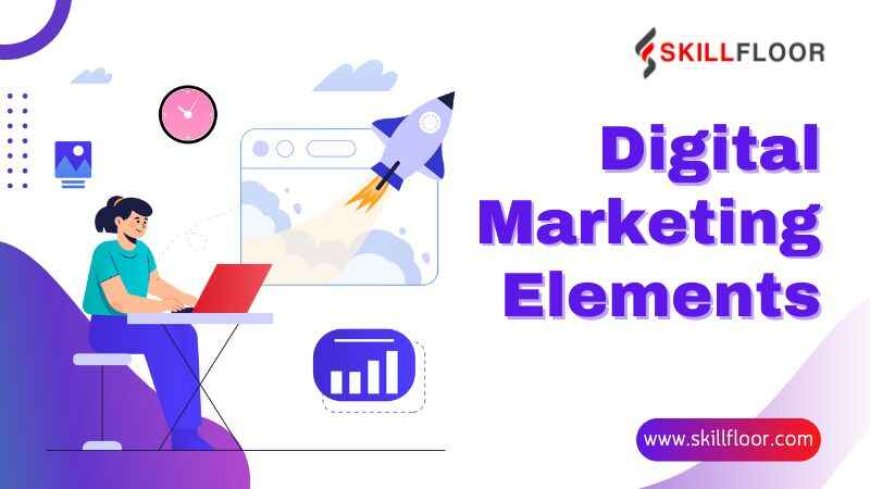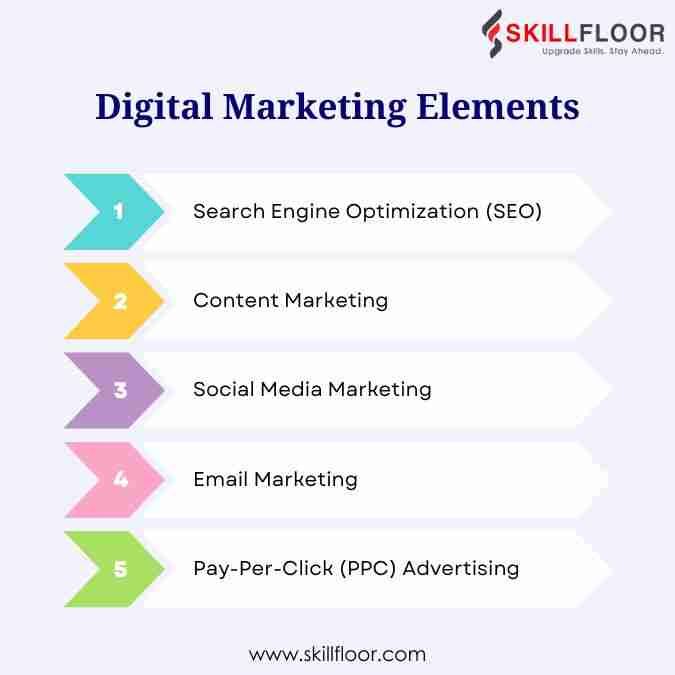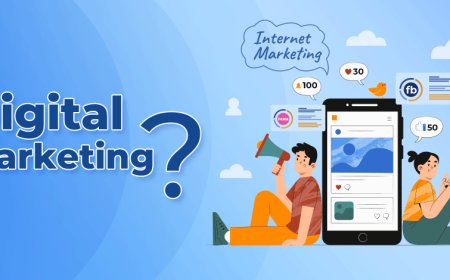How Digital Marketing Elements Drive Revenue and Growth
Discover how key digital marketing elements boost revenue and growth, driving business success through effective online strategies.

Digital Marketing Elements are essential for driving revenue and growth. By using tools such as SEO, content marketing, social media, and email campaigns, businesses can reach a broader audience and engage potential customers effectively. Digital Marketing Elements like search engine optimization help improve a website's visibility, making it easier for customers to find your business online. Content marketing offers valuable information to customers, building trust and credibility. Social media platforms allow direct interaction with your audience, fostering a sense of community and loyalty. Email marketing keeps your audience informed about new products, services, and promotions, encouraging repeat business.
Another important aspect of Digital Marketing Elements is their ability to provide measurable results. With analytics and tracking tools, businesses can monitor the performance of their campaigns in real time, making it possible to adjust strategies for better outcomes. Pay-per-click (PPC) advertising and affiliate marketing are additional Digital Marketing Elements that drive targeted traffic to your website, increasing the chances of conversion. By integrating these various elements into a cohesive strategy, businesses can achieve steady growth and revenue generation. Adopting and optimizing these digital marketing techniques ensures that your business remains relevant and competitive in the ever-evolving digital marketplace.
Understanding Digital Marketing Elements
Digital marketing includes a wide range of strategies and tactics designed to promote products or services through online channels. Here are some key elements that play an important role in driving revenue and growth:
1. Search Engine Optimization (SEO)
SEO is the process of optimizing your website to rank higher in search engine results. A well-optimized website attracts organic traffic, which is valuable as it consists of users actively searching for products or services you offer. Effective SEO strategies include keyword research, on-page optimization, and building high-quality backlinks.
Content marketing involves creating and distributing valuable, relevant content to attract and engage your target audience. This can include blog posts, articles, videos, infographics, and more. High-quality content helps establish your brand as an authority in your industry, drives traffic to your website, and generates leads.
Social media platforms like Facebook, Instagram, Twitter, and LinkedIn provide opportunities to connect with your audience, build brand awareness, and drive traffic to your website. Engaging content, regular updates, and targeted ads can help you reach a larger audience and foster a loyal customer base.
Email marketing is a powerful tool for nurturing leads and maintaining customer relationships. By sending personalized, targeted emails to your subscribers, you can promote products, share valuable content, and drive conversions. Automation tools make it easier to manage email campaigns and track their effectiveness.
5. Pay-Per-Click (PPC) Advertising
PPC advertising allows you to place ads on search engines, social media platforms, and other websites. You only pay when someone clicks on your ad, making it a cost-effective way to drive targeted traffic to your site. Google Ads and Facebook Ads are popular PPC platforms that offer advanced targeting options to reach your ideal audience.

How Digital Marketing Elements Drive Revenue
Each element of digital marketing plays a unique role in driving revenue. Here’s how they contribute to your bottom line:
1. Increased Visibility and Traffic
SEO and content marketing improve your website’s visibility in search engines, driving organic traffic. Social media marketing and PPC ads further enhance your online presence, attracting more visitors to your site.
2. Lead Generation and Conversion
Email marketing, PPC, and affiliate marketing are effective for generating leads and driving conversions. By targeting the right audience with personalized messages, you can nurture leads and guide them through the sales funnel.
3. Customer Engagement and Retention
Social media marketing, content marketing, and email campaigns help engage your audience and build lasting relationships. Regular interactions and valuable content keep your customers coming back, leading to repeat sales and customer loyalty.
4. Cost-Effective Marketing
Digital marketing often offers a higher ROI compared to traditional marketing methods. PPC ads, for example, allow you to control your budget and only pay for actual clicks. Email marketing and social media campaigns can also be highly cost-effective, especially with automation tools.
5. Measurable Results
Analytics tools provide detailed insights into your marketing performance. By tracking metrics like traffic, conversions, and customer engagement, you can measure the success of your campaigns and make data-driven decisions to optimize your strategies.
How Digital Marketing Elements Drive Growth
Beyond driving revenue, digital marketing elements also contribute to overall business growth:
1. Brand Awareness and Credibility
Consistent online presence through SEO, social media, and content marketing builds brand awareness and credibility. As more people recognize and trust your brand, you’ll attract more customers and expand your market reach.
2. Market Expansion
Digital marketing enables you to reach a global audience. By targeting different demographics and geographic locations, you can expand your market and tap into new revenue streams.
3. Competitive Advantage
Staying ahead of the competition requires staying updated with the latest digital marketing trends and technologies. By leveraging advanced tools and strategies, you can outperform competitors and capture a larger market share.
4. Adaptability and Innovation
The digital landscape is constantly evolving. Embracing new technologies and innovative marketing techniques allows you to adapt to changes and seize new growth opportunities.
5. Customer Insights
Understanding your customers’ needs and preferences is crucial for growth. Digital marketing provides valuable data on customer behavior, enabling you to tailor your products, services, and marketing efforts to better meet their expectations.
Understanding how digital marketing elements drive revenue and growth is essential for any business aiming to thrive in today’s competitive landscape. By leveraging the power of SEO, content marketing, social media, email marketing, PPC, and other digital strategies, you can enhance your brand’s visibility, engage your audience, and drive significant revenue growth. Stay updated with the latest trends, analyze your performance, and continuously refine your strategies to achieve long-term success. With a comprehensive digital marketing plan, your business can not only survive but also flourish in the digital age. Embrace the opportunities presented by digital marketing, and watch your revenue and growth reach new heights.






























































